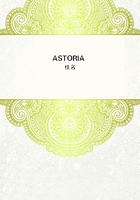
第188章
Your petitioners, with great deference and implicit submission to the wisdom of the national legislature, beg leave to suggest for consideration, whether they have not some claim to national attention and encouragement, from the nature and importance of their undertaking; which though hazardous and uncertain as concerns their private emolument, must, at any rate, redound to the public security and advantage. If their undertaking shall appear to be of the description given, they would further suggest to your honorable bodies, that unless they can procure a regular supply for the trade in which they are engaged, it may languish, and be finally abandoned by American citizens; when it will revert to its former channel, with additional, and perhaps with irresistible, power.
Under these circumstances, and upon all those considerations of public policy which will present themselves to your honorable bodies, in connection with those already mentioned, your petitioners respectfully pray that a law may be passed to enable the President, or any of the heads of departments acting under his authority, to grant permits for the introduction of goods necessary for the supply of the Indians, into the Indian country that is within the boundaries of the United States, under such regulations, and with such restrictions, as may secure the public revenue and promote the public welfare.
And your petitioners shall ever pray, &c.
In witness whereof, the common seal of the American Fur Company ishereunto affixed, the day of March, 1812.
By order of the Corporation.
AN ACT to enable the American Fur Company, and other citizens, to introduce goods necessary for the Indian trade into the territories within the boundaries of the United State.
WHEREAS, the public peace and welfare require that the native Indian tribes, residing within the boundaries of the United States, should receive their necessary supplies under the authority and from the citizens of the United States: Therefore, be it enacted by the Senate and House of Representatives of the United States, in Congress assembled, that it shall be lawful for the President of the United States, or any of the heads of departments thereunto by him duly authorized, from time to time to grant permits to the American Fur Company, their agents or factors, or any other citizens of the United States engaged in the Indian trade, to introduce into the Indian country, within the boundaries of the United States, such goods, wares, and merchandise, as may be necessary for the said trade, under such regulations and restrictions as the said President or heads of departments may judge proper; any law or regulation to the contrary, in anywise, notwithstanding.
Letter from Mr. Gallatin to Mr. Astor, datedNew York, August 5, 1835.
DEAR SIR, - In compliance with your request, I will state such facts as I recollect touching the subjects mentioned in your letter of 28th ult. I may be mistaken respecting dates and details, and will only relate general facts, which I well remember.
In conformity with the treaty of 1794 with Great Britain, the citizens and subjects of each country were permitted to trade with the Indians residing in the territories of the other party.
The reciprocity was altogether nominal. Since the conquest of Canada, the British had inherited from the French the whole fur trade, through the great lakes and their communications, with all the western Indians, whether residing in the British dominions or the United States. They kept the important western posts on those lakes till about the year 1797. And the defensive Indian war, which the United States had to sustain from 1776 to 1795, had still more alienated the Indians, and secured to the British their exclusive trade, carried through the lakes, wherever the Indians in that quarter lived. No American could, without imminent danger of property and life, carry on that trade, even within the United States, by the way of either Michilimackinac or St. Mary's. And independent of the loss of commerce, Great Britain was enabled to preserve a most dangerous influence over our Indians.
It was under these circumstances that you communicated to our government the prospect you had to be able, and your intention, to purchase one half of the interest of the Canadian Fur Company, engaged in trade by the way of Michilimackinac with our own Indians. You wished to know whether the plan met with the approbation of government, and how far you could rely on its protection and encouragement. This overture was received with great satisfaction by the administration, and Mr. Jefferson, then President, wrote you to that effect. I was also directed, as Secretary of the Treasury, to write to you an official letter to the same purpose. On investigating the subject, it was found that the Executive had no authority to give you any direct aid; and Ibelieve you received nothing more than an entire approbation of your plan, and general assurances of the protection due to every citizen engaged in lawful and useful pursuits.
You did effect the contemplated purchase, but in what year I do not recollect. Immediately before the war, you represented that a large quantity of merchandise, intended for the Indian trade, and including arms and munitions of war, belonging to that concern of which you owned one half, was deposited at a post on Lake Huron, within the British dominions; that, in order to prevent their ultimately falling into the hands of Indians who might prove hostile, you were desirous to try to have them conveyed into the United States; but that you were prevented by the then existing law of non-intercourse with the British dominions.